- Home
- William Shakespeare
The Arden Shakespeare Complete Works Page 7
The Arden Shakespeare Complete Works Read online
Page 7
Hung with the trophies of my lovers gone,
Who all their parts of me to thee did give;
That due of many, now is thine alone.
Their images I loved, I view in thee,
And thou, all they, hast all the all of me.
32
If thou survive my well-contented day,
When that churl death my bones with dust shall cover,
And shalt by fortune once more re-survey
These poor rude lines of thy deceased lover:
Compare them with the bett’ring of the time,
And though they be outstripped by every pen,
Reserve them for my love, not for their rhyme,
Exceeded by the height of happier men.
O then vouchsafe me but this loving thought:
‘Had my friend’s Muse grown with this growing age,
A dearer birth than this his love had brought,
To march in ranks of better equipage:
But since he died and poets better prove,
Theirs for their style I’ll read, his for his love.’
33
Full many a glorious morning have I seen
Flatter the mountain tops with sovereign eye,
Kissing with golden face the meadows green,
Gilding pale streams with heavenly alchemy;
Anon permit the basest clouds to ride
With ugly rack on his celestial face,
And from the forlorn world his visage hide,
Stealing unseen to west with this disgrace:
Even so my sun one early morn did shine
With all triumphant splendour on my brow;
But out alack, he was but one hour mine,
The region cloud hath masked him from me now.
Yet him for this, my love no whit disdaineth:
Suns of the world may stain, when heaven’s sun staineth.
34
Why didst thou promise such a beauteous day
And make me travail forth without my cloak,
To let base clouds o’ertake me in my way,
Hiding thy brav’ry in their rotten smoke?
’Tis not enough that through the cloud thou break,
To dry the rain on my storm-beaten face,
For no man well of such a salve can speak
That heals the wound and cures not the disgrace;
Nor can thy shame give physic to my grief;
Though thou repent, yet I have still the loss;
Th’offender’s sorrow lends but weak relief
To him that bears the strong offence’s loss.
Ah, but those tears are pearl which thy love sheds,
And they are rich, and ransom all ill deeds.
35
No more be grieved at that which thou hast done;
Roses have thorns, and silver fountains mud;
Clouds and eclipses stain both moon and sun,
And loathsome canker lives in sweetest bud.
All men make faults, and even I, in this,
Authorizing thy trespass with compare,
Myself corrupting, salving thy amiss,
Excusing these sins more than these sins are:
For to thy sensual fault I bring in sense;
Thy adverse party is thy advocate,
And ’gainst myself a lawful plea commence:
Such civil war is in my love and hate
That I an accessory needs must be
To that sweet thief which sourly robs from me.
36
Let me confess that we two must be twain,
Although our undivided loves are one;
So shall those blots that do with me remain,
Without thy help, by me be borne alone.
In our two loves there is but one respect,
Though in our lives a separable spite;
Which, though it alter not love’s sole effect,
Yet doth it steal sweet hours from love’s delight.
I may not evermore acknowledge thee,
Lest my bewailed guilt should do thee shame,
Nor thou with public kindness honour me,
Unless thou take that honour from thy name:
But do not so; I love thee in such sort,
As thou being mine, mine is thy good report.
37
As a decrepit father takes delight
To see his active child do deeds of youth,
So I, made lame by fortune’s dearest spite,
Take all my comfort of thy worth and truth:
For whether beauty, birth, or wealth, or wit,
Or any of these all, or all, or more,
Entitled in thy parts do crowned sit,
I make my love engrafted to this store:
So then I am not lame, poor, nor despised,
Whilst that this shadow doth such substance give
That I in thy abundance am sufficed,
And by a part of all thy glory live:
Look what is best, that best I wish in thee;
This wish I have, then ten times happy me.
38
How can my Muse want subject to invent
While thou dost breathe, that pour’st into my verse
Thine own sweet argument, too excellent
For every vulgar paper to rehearse?
O give thyself the thanks, if aught in me
Worthy perusal stand against thy sight:
For who’s so dumb, that cannot write to thee,
When thou thyself dost give invention light?
Be thou the tenth Muse, ten times more in worth
Than those old nine which rhymers invocate;
And he that calls on thee, let him bring forth
Eternal numbers to outlive long date.
If my slight Muse do please these curious days,
The pain be mine, but thine shall be the praise.
39
O how thy worth with manners may I sing,
When thou art all the better part of me?
What can mine own praise to mine own self bring,
And what is’t but mine own, when I praise thee?
Even for this, let us divided live,
And our dear love lose name of single one,
That by this separation I may give
That due to thee which thou deserv’st alone.
O absence, what a torment wouldst thou prove,
Were it not thy sour leisure gave sweet leave
To entertain the time with thoughts of love,
Which time and thoughts so sweetly dost deceive,
And that thou teachest how to make one twain
By praising him here who doth hence remain.
40
Take all my loves, my love; yea, take them all;
What hast thou then more than thou hadst before?
No love, my love, that thou mayst true love call;
All mine was thine, before thou hadst this more:
Then if for my love thou my love receivest,
I cannot blame thee, for my love thou usest;
But yet be blamed, if thou thyself deceivest
By wilful taste of what thyself refusest.
I do forgive thy robb’ry, gentle thief,
Although thou steal thee all my poverty;
And yet love knows it is a greater grief
To bear love’s wrong, than hate’s known injury.
Lascivious grace, in whom all ill well shows,
Kill me with spites; yet we must not be foes.
41
Those pretty wrongs that liberty commits
When I am sometime absent from thy heart,
Thy beauty and thy years full well befits;
For still temptation follows where thou art.
Gentle thou art, and therefore to be won;
Beauteous thou art, therefore to be assailed;
And when a woman woos, what woman’s son
Will sourly leave her till he have prevailed?
Ay me, but yet thou
mightst my seat forbear,
And chide thy beauty and thy straying youth
Who lead thee in their riot even there
Where thou art forced to break a twofold truth:
Hers by thy beauty tempting her to thee,
Thine by thy beauty being false to me.
42
That thou hast her it is not all my grief,
And yet it may be said I loved her dearly;
That she hath thee is of my wailing chief,
A loss in love that touches me more nearly.
Loving offenders, thus I will excuse ye:
Thou dost love her, because thou knowst I love her,
And for my sake even so doth she abuse me,
Suff ’ring my friend for my sake to approve her;
If I lose thee, my loss is my love’s gain,
And losing her, my friend hath found that loss;
Both find each other, and I lose both twain,
And both for my sake lay on me this cross:
But here’s the joy, my friend and I are one;
Sweet flattery! Then she loves but me alone.
43
When most I wink, then do mine eyes best see;
For all the day they view things unrespected,
But when I sleep, in dreams they look on thee,
And darkly bright, are bright in dark directed.
Then thou whose shadow shadows doth make bright,
How would thy shadow’s form form happy show
To the clear day with thy much clearer light,
When to unseeing eyes thy shade shines so?
How would (I say) mine eyes be blessed made
By looking on thee in the living day,
When in dead night thy fair imperfect shade
Through heavy sleep on sightless eyes doth stay?
All days are nights to see till I see thee,
And nights bright days when dreams do show thee me.
44
If the dull substance of my flesh were thought,
Injurious distance should not stop my way;
For then, despite of space, I would be brought
From limits far remote, where thou dost stay;
No matter then although my foot did stand
Upon the farthest earth removed from thee,
For nimble thought can jump both sea and land
As soon as think the place where he would be.
But ah, thought kills me, that I am not thought,
To leap large lengths of miles when thou art gone,
But that so much of earth and water wrought,
I must attend time’s leisure with my moan;
Receiving naughts by elements so slow
But heavy tears, badges of either’s woe.
45
The other two, slight air, and purging fire,
Are both with thee, wherever I abide:
The first my thought, the other my desire,
These, present absent, with swift motion slide;
For when these quicker elements are gone
In tender embassy of love to thee,
My life being made of four, with two alone
Sinks down to death, oppressed with melancholy,
Until life’s composition be recured
By those swift messengers returned from thee
Who even but now come back again assured
Of thy fair health, recounting it to me.
This told, I joy; but then no longer glad,
I send them back again and straight grow sad.
46
Mine eye and heart are at a mortal war
How to divide the conquest of thy sight;
Mine eye, my heart thy picture’s sight would bar;
My heart, mine eye the freedom of that right;
My heart doth plead that thou in him dost lie,
A closet never pierced with crystal eyes;
But the defendant doth that plea deny,
And says in him thy fair appearance lies.
To ’cide this title is empanelled
A quest of thoughts, all tenants to the heart,
And by their verdict is determined
The clear eyes’ moiety, and the dear heart’s part:
As thus, mine eyes’ due is thy outward part,
And my heart’s right, thy inward love of heart.
47
Betwixt mine eye and heart a league is took,
And each doth good turns now unto the other;
When that mine eye is famished for a look,
Or heart in love with sighs himself doth smother,
With my love’s picture then my eye doth feast,
And to the painted banquet bids my heart;
Another time mine eye is my heart’s guest,
And in his thoughts of love doth share a part.
So either by thy picture or my love,
Thyself away, art present still with me:
For thou no further than my thoughts canst move,
And I am still with them, and they with thee;
Or if they sleep, thy picture in my sight
Awakes my heart to heart’s and eye’s delight.
48
How careful was I, when I took my way,
Each trifle under truest bars to thrust,
That to my use it might unused stay
From hands of falsehood, in sure wards of trust;
But thou, to whom my jewels trifles are,
Most worthy comfort, now my greatest grief,
Thou best of dearest, and mine only care,
Art left the prey of every vulgar thief.
Thee have I not locked up in any chest,
Save where thou art not, though I feel thou art,
Within the gentle closure of my breast,
From whence at pleasure thou mayst come and part;
And even thence thou wilt be stol’n, I fear;
For truth proves thievish for a prize so dear.
49
Against that time, if ever that time come,
When I shall see thee frown on my defects;
Whenas thy love hath cast his utmost sum,
Called to that audit by advised respects;
Against that time when thou shalt strangely pass,
And scarcely greet me with that sun, thine eye;
When love, converted from the thing it was,
Shall reasons find of settled gravity;
Against that time do I ensconce me here,
Within the knowledge of mine own desert,
And this my hand against myself uprear,
To guard the lawful reasons on thy part:
To leave poor me, thou hast the strength of laws,
Since why to love, I can allege no cause.
50
How heavy do I journey on the way

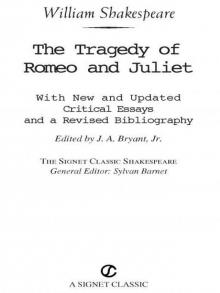 Romeo and Juliet
Romeo and Juliet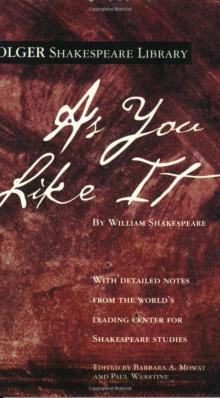 As You Like It (Folger Shakespeare Library)
As You Like It (Folger Shakespeare Library)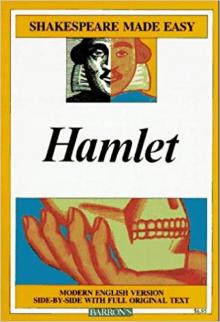 Hamlet
Hamlet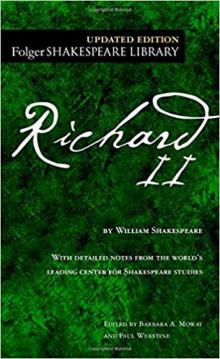 Richard II (Folger Shakespeare Library)
Richard II (Folger Shakespeare Library) Macbeth
Macbeth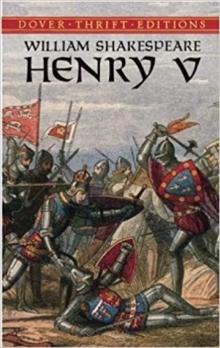 Henry V
Henry V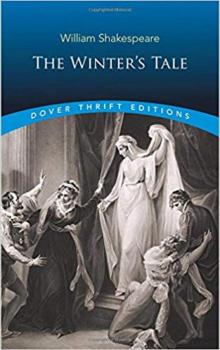 The Winter's Tale
The Winter's Tale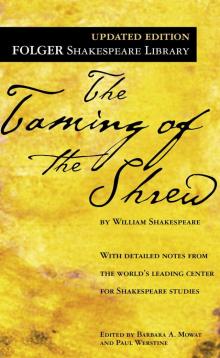 The Taming of the Shrew
The Taming of the Shrew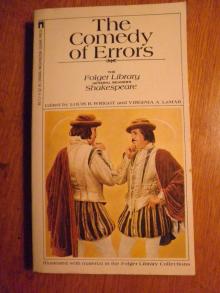 The Comedy of Errors
The Comedy of Errors King Lear (Folger Shakespeare Library)
King Lear (Folger Shakespeare Library)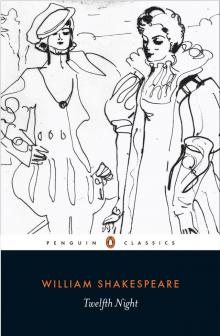 Twelfth Night
Twelfth Night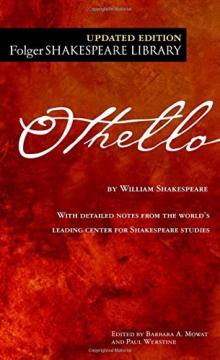 Othello
Othello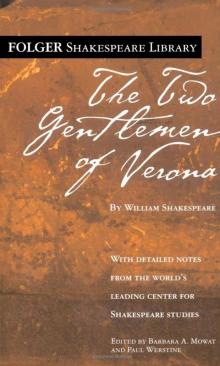 The Two Gentlemen of Verona
The Two Gentlemen of Verona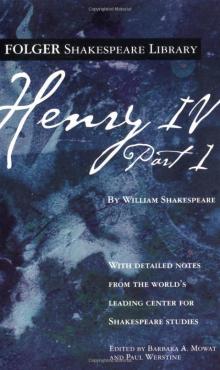 Henry IV, Part 1 (Folger Shakespeare Library)
Henry IV, Part 1 (Folger Shakespeare Library)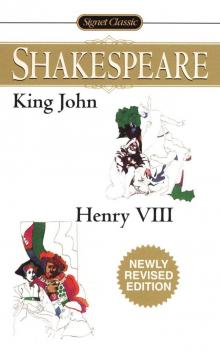 King John/Henry VIII (Signet Classics)
King John/Henry VIII (Signet Classics)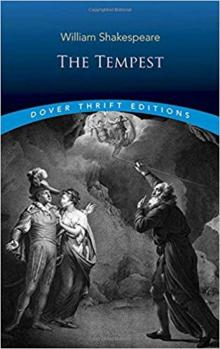 The Tempest
The Tempest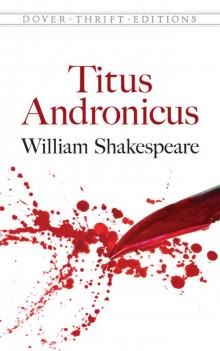 Titus Andronicus (Dover Publications)
Titus Andronicus (Dover Publications)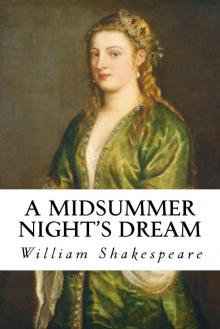 A Midsummer Night's Dream
A Midsummer Night's Dream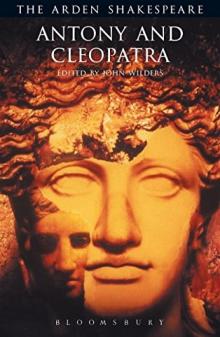 Antony and Cleopatra (Arden Shakespeare: Third Series)
Antony and Cleopatra (Arden Shakespeare: Third Series) The Oxford Shakespeare: Henry IV, Part 2 (Oxford World's Classics)
The Oxford Shakespeare: Henry IV, Part 2 (Oxford World's Classics)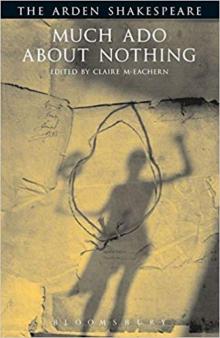 Much Ado About Nothing (Arden Shakespeare: Third Series)
Much Ado About Nothing (Arden Shakespeare: Third Series)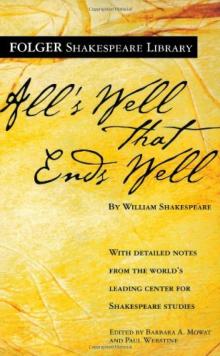 All's Well That Ends Well
All's Well That Ends Well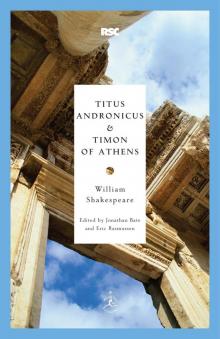 Titus Andronicus & Timon of Athens
Titus Andronicus & Timon of Athens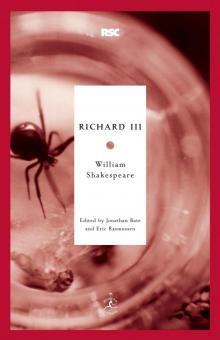 Richard III (Modern Library Classics)
Richard III (Modern Library Classics) Coriolanus
Coriolanus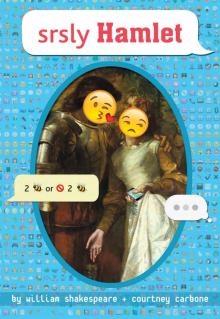 srsly Hamlet (OMG Shakespeare)
srsly Hamlet (OMG Shakespeare)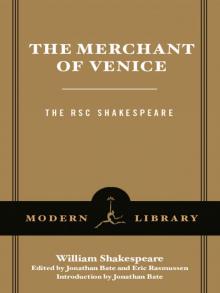 The Merchant of Venice
The Merchant of Venice Richard III
Richard III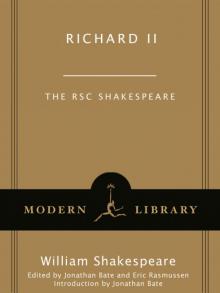 Richard II
Richard II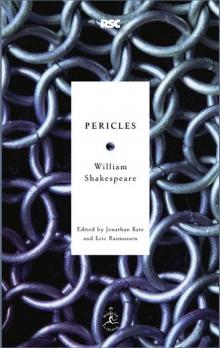 Pericles
Pericles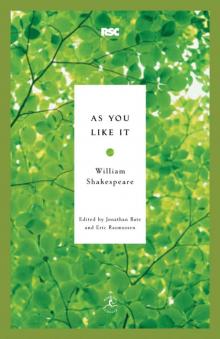 As You Like It
As You Like It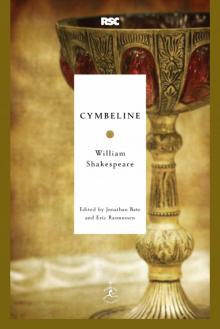 Cymbeline
Cymbeline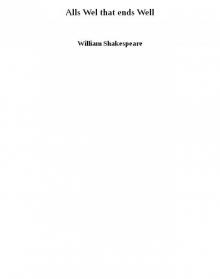 Alls Wel that ends Well
Alls Wel that ends Well YOLO Juliet
YOLO Juliet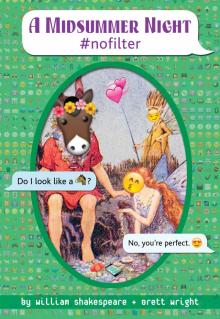 A Midsummer Night #nofilter
A Midsummer Night #nofilter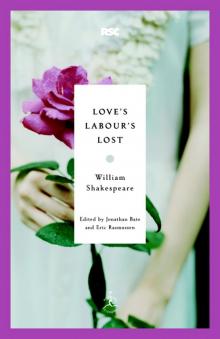 Love's Labour's Lost
Love's Labour's Lost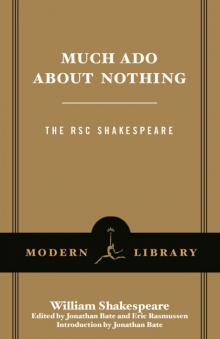 Much Ado About Nothing
Much Ado About Nothing Romeo & Juliet & Vampires
Romeo & Juliet & Vampires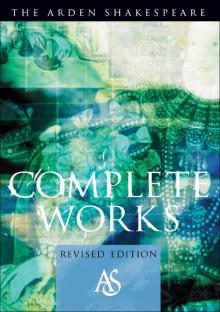 The Arden Shakespeare Complete Works
The Arden Shakespeare Complete Works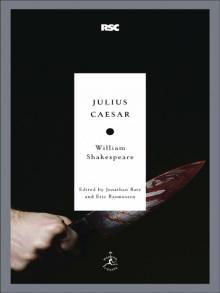 Julius Caesar
Julius Caesar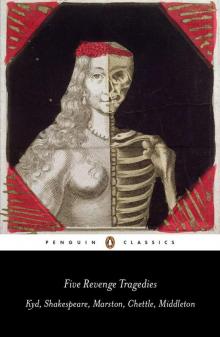 Five Revenge Tragedies: The Spanish Tragedy, Hamlet, Antonio's Revenge, The Tragedy of Hoffman, The Revenger's Tragedy (Penguin Classics)
Five Revenge Tragedies: The Spanish Tragedy, Hamlet, Antonio's Revenge, The Tragedy of Hoffman, The Revenger's Tragedy (Penguin Classics) Macbeth #killingit
Macbeth #killingit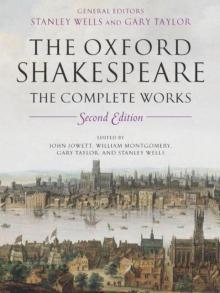 The Oxford Shakespeare: The Complete Works
The Oxford Shakespeare: The Complete Works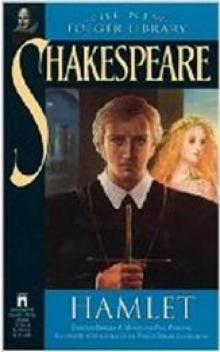 Hamlet, Prince of Denmark (Collins edition)
Hamlet, Prince of Denmark (Collins edition)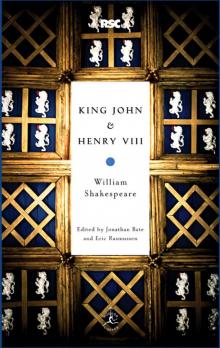 King John & Henry VIII
King John & Henry VIII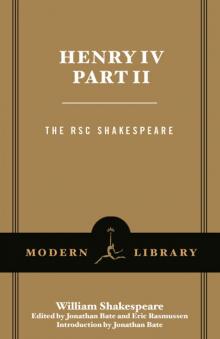 Henry IV, Part 2
Henry IV, Part 2 Complete Plays, The
Complete Plays, The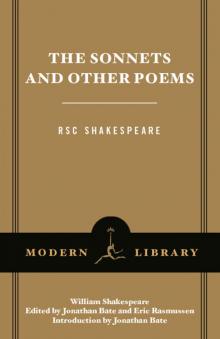 The Sonnets and Other Poems
The Sonnets and Other Poems Antony and Cleopatra
Antony and Cleopatra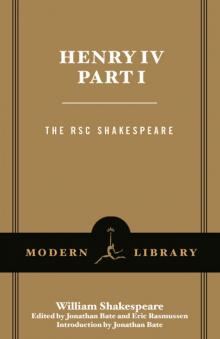 Henry IV, Part 1
Henry IV, Part 1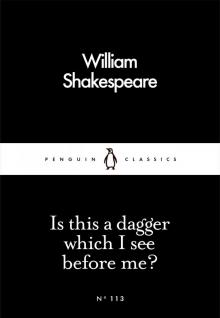 Is This a Dagger Which I See Before Me?
Is This a Dagger Which I See Before Me? The Complete Works of William Shakespeare In Plain and Simple English (Translated)
The Complete Works of William Shakespeare In Plain and Simple English (Translated) The Sonnets
The Sonnets